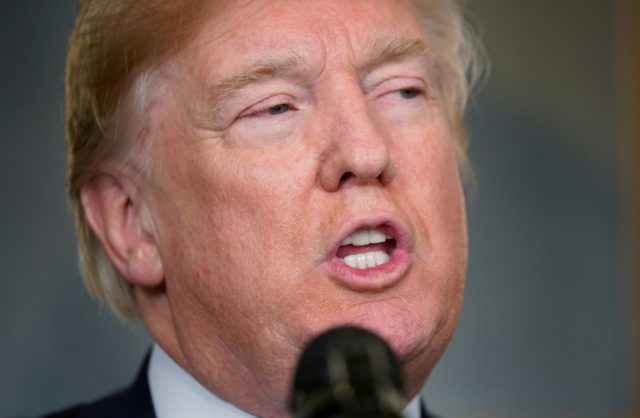Paris (AFP) – Washington’s break with traditional G7 allies may open the way for a new world order in which Donald Trump cultivates former enemies and US-China ties dictate the pace of the 21st century, analysts say.
“Are we witnessing the US-provoked unravelling of the global order of systems and institutions so painstakingly built after World War II?” asked Fred Kempe of the US think tank Atlantic Council.
Under Trump, most of the accepted diplomatic order has been shaken up, from the traditional balance of power between blocs to intangible alliances and longstanding systems of coordination.
In breaking with just about every multilateral structure in the name of US interests — the Paris climate accord, free trade agreements, the Iran nuclear deal, pursuing an aggressive foreign policy while taunting allies as much as enemies — Trump appears to have set up new terrain to go up against Xi Jinping.
– The old order –
“For Trump, there is only the G2: the United States and China. As a result, Europe should understand that the era of the multilateral economic order is over,” says Swiss economist Thomas Straubhaar of Hamburg University.
And even if Washington and Beijing are enemies, they share the same animosity for multilateralism.
“Trump has seen that the old order of globalisation with liberal free trade broke down in 2008” with the global financial crisis, explains British economist Meghnad Desai.
“He sees the US as no longer being able to afford to provide the world with global public goods such as the structure of free trade rules and security for the Western allies.
“He sees the US as engaged in a series of bilateral trade relations where the trade deficit is the main issue.”
But China also “does not want multilateralism” in the traditional sense, says Jean-Francois Di Meglio, president of the French think tank Asia Centre.
“It is developing a variety of structures, such as the Shanghai Cooperation Organisation or the Asian Infrastructure Investment Bank, all of which will, without a doubt, give rise to another form of governance” with a variable and asymmetric structure that changes according to the stakeholders, he explains.
For Brahma Chellaney, a professor at the Centre for Policy Research in New Delhi, Trump’s ‘America First’ strategy and Xi’s ‘Chinese dream’ “are founded on a common premise: that the world’s two biggest powers have complete latitude to act in their own interest.”
“The G2 world order that they are creating is thus hardly an order at all. It is a trap, in which countries are forced to choose between an unpredictable and transactional Trump-led US and an ambitious and predatory China,” he wrote in an op-ed published in May.
And ties between the two men are likely to have a singular effect.
“The relationship between the United States and China will shape the 21st century,” predicted former US president Barack Obama in July 2009.
His successor will perhaps make it a new reality, but very different from the one imagined by Obama when the united West was hoping to get China to accept the rules of the game.
– Thucydides trap? –
That doesn’t mean that Washington and Beijing are going to get along to exploit the rest of the world to the detriment of the disoriented Europeans, who still haven’t had their last word. And the two economic powers also clash with each other.
But as a longtime businessman, Trump seems to think that he will come out better in a head to head, liberated from the constraints of multilateralism. He is negotiating with Beijing on the trade deficit in a much more constructive way than the invectives exchanged, for example, with his Canadian neighbour.
“Trump doesn’t get along so badly with China and with Russia. They have some differences, they can agree on certain points,” says analyst Di Meglio.
“The example of ZTE is striking: it (Washington) wages a trade war with China, and at the same time it passes a mind-blowing agreement with ZTE,” he adds, referring to the Chinese telecoms giant kicked out of the US market then was finally authorised to re-enter it at the end of a thorny negotiation.
If the post-WWII world order had for a main goal to avoid a new global conflagration, the imperative of peace seems less pressing in this new developing order.
But some fear the world could fall into the “Thucydides trap”. That refers to a concept by American Graham Allison which says that conflict is inevitable when an emerging power causes fear in a dominant power. Thucydides was an Athenian historian and general who wrote a history of the Peloponnesian war.
China’s leader Xi Jinping for one countered in September 2015 that “there’s no such thing as a so-called Thucydides trap. But if the major countries repeatedly make strategic errors, they could trigger such a trap.”

COMMENTS
Please let us know if you're having issues with commenting.